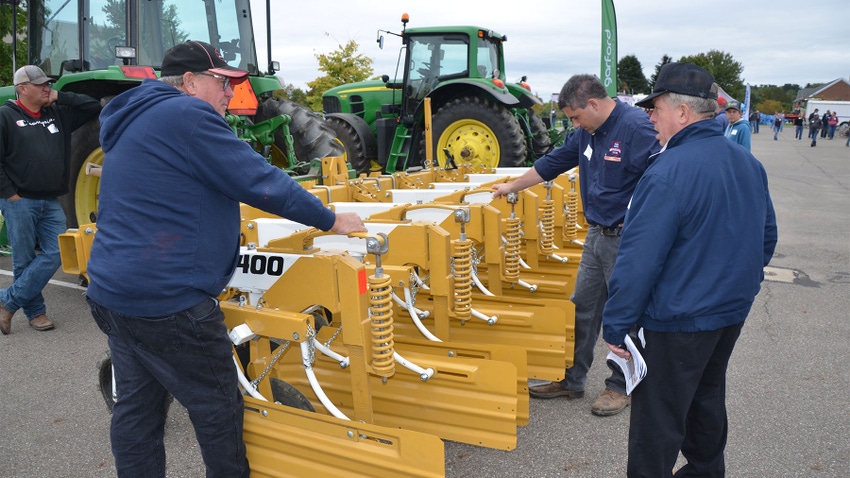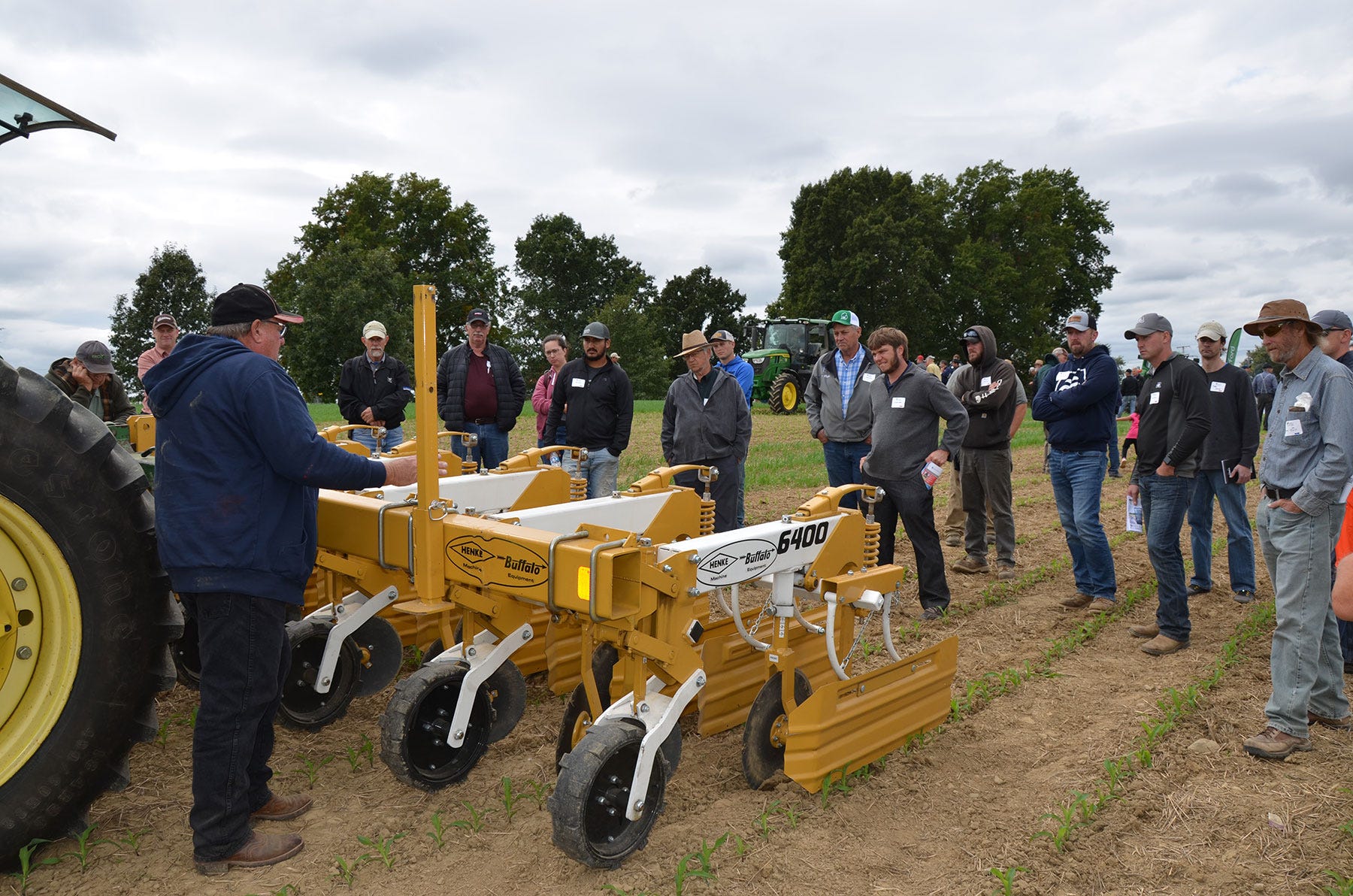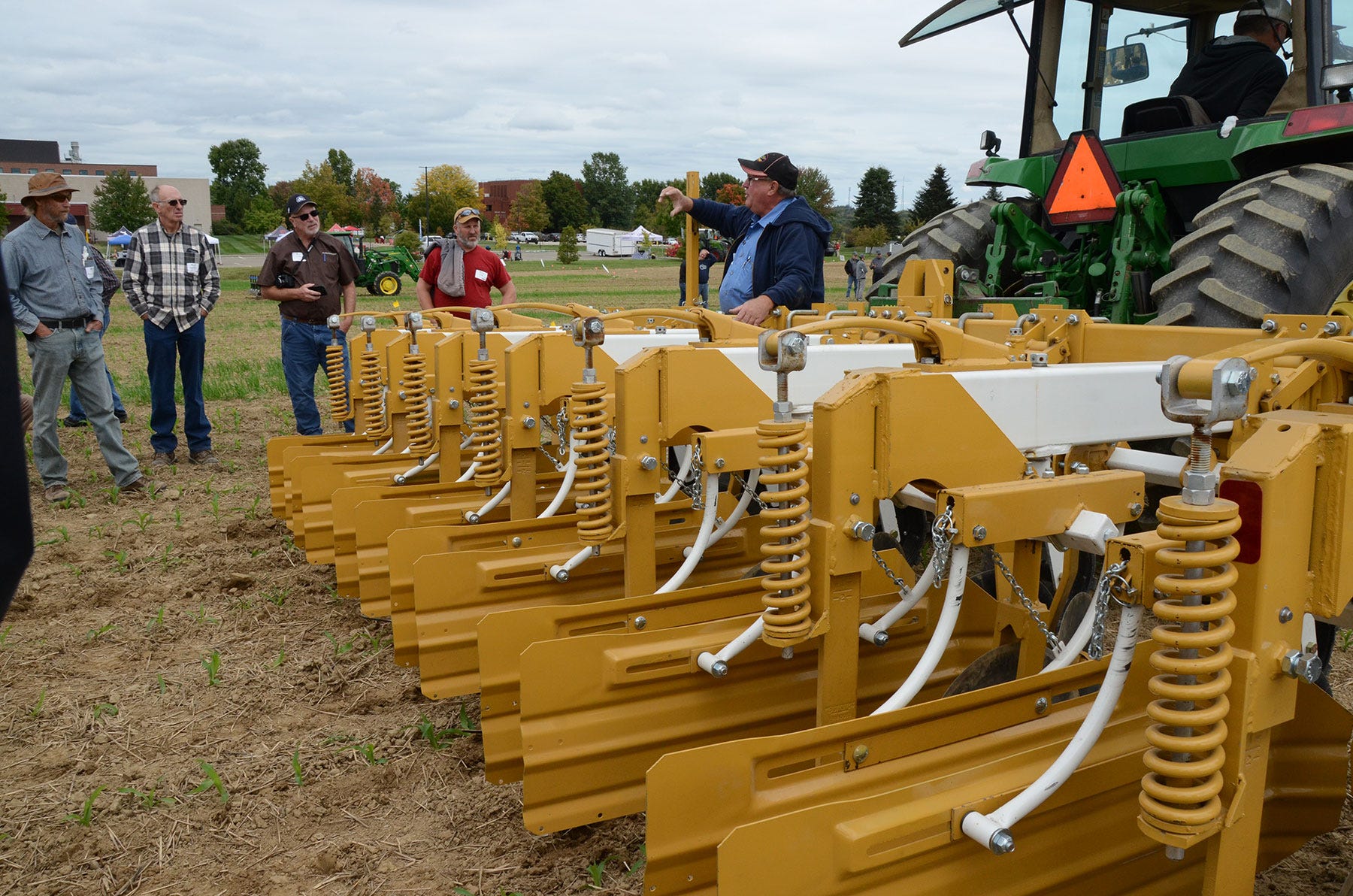
Dale Kumpf hasn’t talked to conventional growers in probably 25-30 years about the cultivators he sells for Buffalo Equipment.
But in the past six months, he’s been hearing from growers who want to use a cultivator as a cleanup pass. Conventional farmers, he says, are becoming interested in doing away with one or two of their spray passes.
“There’s also a resurgence into used cultivators, particularly in Southern states,” he says, noting that’s where Roundup resistance started. “The interest is working its way up this direction and bringing some of this about,” says Kumpf, who has been with the company for 43 years and is based in Nebraska.

IN-FIELD DEMO: The Buffalo cultivator, and several other weed control devices, were demonstrated at the Midwest Mechanical Weed Control field day in Wooster, Ohio.
He and a host of others were showcasing equipment, techniques and ideas at the Midwest Mechanical Weed Control field day Sept. 27 in Wooster, Ohio.
Kumpf brought with him and demonstrated how to use a 6400 cultivator “with all the bells and whistles,” he says.
Watch the video below:
The company’s line of high-residue cultivators is commonly used for conventional till, ridge till, minimum till and no-till. “We’ve also found a good market on the organic side,” Kumpf says.
A few of the machine’s features include:
semi-pneumatic, flat-free 4½-by-16-inch tires with staggered lugs that allow the tire to rotate in loose soil without plowing or pushing
large, 18-inch cutting coulters with 12-inch depth bands that slice through the high residue left by minimum-till, no-till or ridge-till high-bushel crops; optional 20-inch coulter also available
spring cushion sweep shanks for rocky conditions
leaf-over-coil spring combination that allows impact protection while maintaining proper operating position
adjustable foot bracket that allows proper pitch of sweep for maximum penetration
"These machines are built for rugged conditions, and they shine the most when things go sideways,” Kumpf says. “When the ground is too hard, this machine will shine while others won’t penetrate.”
Ease of adjustment is a selling feature, especially on the 24-row units. “Farmers don’t want to be standing out in 80-degree weather all day wrenching on their cultivator. They want to get back into the field and kill weeds,” he says, while citing the machine’s durability.
Kumpf also noted the disk hiller sight gauge allows for easy adjusting to throw soil away from or into the crop row as desired.
“They also provide loose soil for the cultivator to work with, so at speeds we like to work with between 5-8 mph, we get a flow of soil into the crop row to bury small weeds — especially early in the cropping season — which is very important for organics,” he says.

RETURN TO CULTIVATION: Dale Kumpf says he’s meeting with more conventional farmers who are wanting to do away with a couple of spray passes.
Buffalo has eight models of cultivators. “They are heavy-built, made to last and priced accordingly — cultivators run between $6,000 and $8,000 a row,” Kumpf says.
For more information about Buffalo, visit apacheequipment.com. Kumpf can be reached at [email protected] or 402-371-1400.
About the Author(s)
You May Also Like






